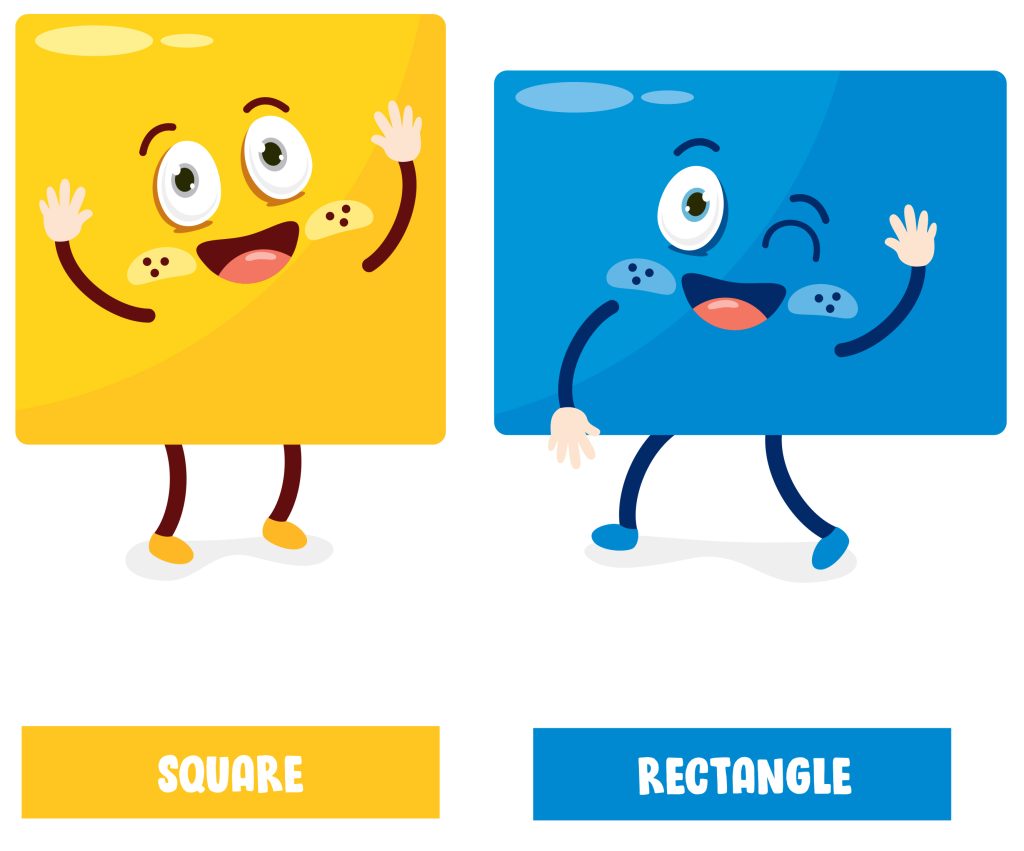I was in the 4th grade. We were studying geometry. Mrs. Wilburn was the teacher.
I read the definition of a square in the textbook:
A square is a polygon with four equal sides and four equal angles.
I read the definition of a rectangle:
A rectangle is a polygon with four sides and four equal angles.
I thought, “Okay, then a square is also a rectangle.”

Hoping to be validated and praised, I went to Mrs. Wilburn and asked, “So a square is also a rectangle, right?”
“No,” she said, “a square is a square and a rectangle is a rectangle. A square is never a rectangle.”
So I went back to my desk and read the definitions again. And I thought about it. And I read the definitions. I went back to her desk because now I was thoroughly weirded out.
“But the book says that a rectangle has four sides and four equal angles. A square has four sides and four equal angles. So isn’t a square also a rectangle?”
“No, a square has four equal sides and four equal angles. A square isn’t a rectangle.”
This was the turning point in my math life.
I had two choices:
- The blue pill: Believe Mrs. Wilburn and thus believe I wasn’t competent to do math because my logic was clearly faulty.
- The red pill: Believe myself and trust my logic.
Swallowing the blue pill, choice 1, would mean that for the rest of my life I would hate math. I would say things like, “I’ve never been good at math,” and “I switched my major in college because what I really loved required too much math.”
But if I took the red pill, it would mean that I would become a math vigilante. Regardless of the topic in math, I would know that I could figure it out no matter what anyone else said.
I would believe and quote a favorite professor, Dr. Fitzgibbon (aka Fitz) when he said: “Once you realize we are all idiots, only then can you do math.”
And I would start a math blog.
I chose the red pill.
I’ll put money on it that 90% of people have similar stories to tell.
They might not have such outwardly facing results like a blog, but some do.
They might not have become math vigilantes or math incompetents – these are the two ends of the spectrum. My extremist personality causes me to swing wildly and severely in one direction.
But I’ll bet that anyone with a story like this, took a turn in their math learning.
Teachers have an incredible power to affect students.
With this power comes the responsibility to talk to our students. Really listen to them. And learn from them. It’s okay to be wrong. It’s okay to be confused. Our job is to facilitate learning, not know everything.
We should welcome questioning. Welcome the alternate method. Welcome the new viewpoints.
Remember, we’re all idiots – we all have to think, be confused and sort things out. Even the PhD math professors.
The difference between a student and us is that we don’t let questions or confusion stop us from struggling through to the solution. Even if it’s a different solution that what we’re used to.
Instill that confidence in your students and you’ll be successful in teaching them.
What do you think? Join the discussion by commenting.


Leave a Reply